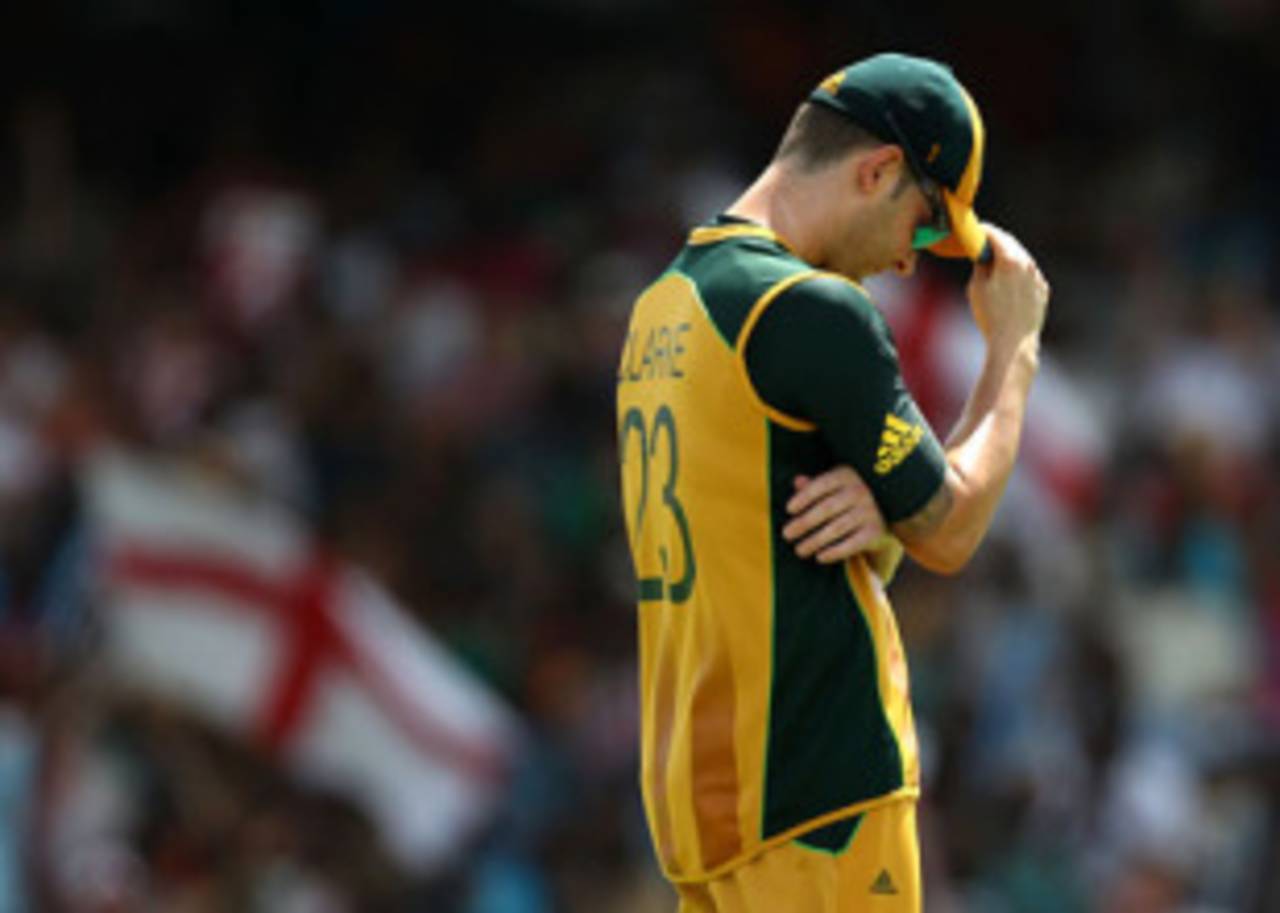Michael Clarke is the best batsman by far in Australia's Test team and comfortably the least productive in Twenty20s. He is also the captain and has led the side in 15 matches, winning 12 times and losing once. It was a big defeat - the
World Twenty20 final - but his leadership is not what is in doubt. He is still being groomed for the Test captaincy and his current troubles will develop his experience base for Ricky Ponting's role when the incumbent steps down.
It is two years until the next global Twenty20 event and Clarke is unlikely to be there unless he transforms his batting approach of slicing gaps into more bombing of balls into grandstands. As Clarke understands, subtlety is not necessary in this format. By sprinting singles and finding regular twos, he thought he was doing the right thing by his team. He wasn't.
"I certainly know they [my performances] haven't been up to scratch through this whole tournament and probably in Twenty20 cricket in general," Clarke said after the final defeat in Barbados. "I'm sure the selectors will sit down and have a look and if I'm not the right guy for No. 3 and the captaincy then they'll make that decision."
Australia need more of Clarke's Christchurch outlook - he blasted
67 off 45 balls there in February - and less of his jogging in the Caribbean. In seven games he managed 92 runs at an average of 15.33 and a
strike-rate of 80.70, making him the side's modern-day incarnation of Geoff Marsh, the batting anchor of the 1980s. The next lowest strike-rate, including the bowlers, was Brad Haddin's 102.08.
He deserves a chance to change and there is no rush for an overall. This is not like the 50-over World Cup, which signals a clear-out as teams re-focus for an event four years ahead. Before the next World Twenty20 there are oodles of opportunities for players to emerge through the various domestic leagues. Except for Clarke.
By being a Test and one-day master Clarke won't be able to practise raising his short game. International Twenty20 engagements over the rest of the year are rare and there will be only three on offer for Australia during the home summer. New South Wales, his state side, are not in the Champions League, he doesn't play in the IPL, and he won't get to turn out in Australia's Big Bash.
If he can't morph into a batting hare, a smooth transition will be much easier to achieve next year. Ponting, 35, will probably retire from ODIs at the end of the World Cup in April, having attempted a fourth win in a row, and Clarke can take over in a format he is at one with. That will allow him to shed the Twenty20 demands and let the regeneration of the T20 set-up to occur with a new leader. Cameron White is the current vice-captain but the personnel in this squad can alter so rapidly that Tasmania's George Bailey might also be a contender.
Until then Clarke must remember the strokes of his youth when he bats in Twenty20s. The drives over cover, the hooks in the air and the freedom of belting the ball without worrying about the consequences. This was the attitude that blew him into Test cricket with a century on debut
in Bangalore - he hit four sixes to Adam Gilchrist's three - and another one in his first game at home against New Zealand. At
the Gabba he reached three figures with two pulled fours and a three in the over before lunch.
At the time he was the breathtaking wonder boy of Australian cricket. After he was cut from the Test side a year later he eliminated those riskier elements, growing into the country's most professional batsman, and hasn't been able to re-programme them.
"That's the thing, if I play like that, that's probably why I got dropped," Clarke said in November. "You have your day in the sun sometimes then miss out five times." One awesome day every six matches in Twenty20 means there is no talk of you getting the sack.
